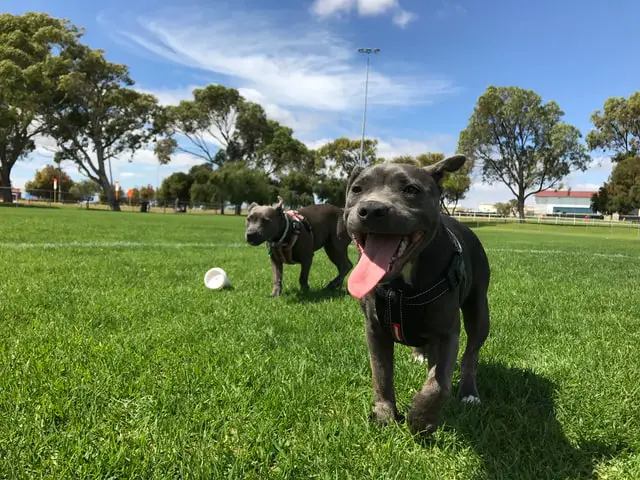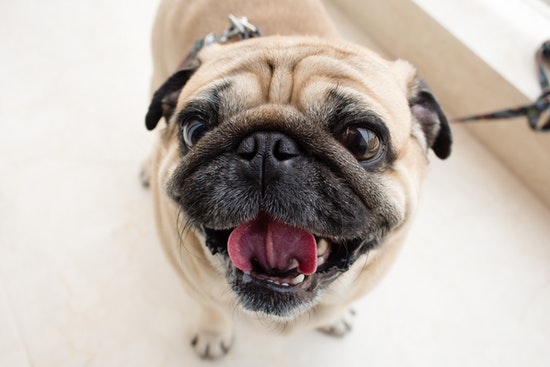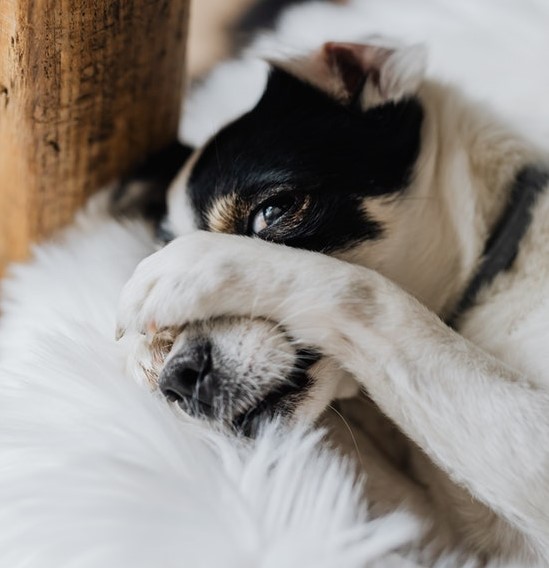Dogs show certain behaviors that make us curious or even worried sometimes. Why do they run in circles chasing their tails? Why do they eat their poop? Why do they irrationally dislike your neighbor’s kid? Why would they prefer playing with sticks instead of the stuffed animal you purchased from the pet shop?
Yet another frequent question many dog owners ask is, why does my dog huff at me? Huffing is a common thing in dogs, especially those who have flat faces and short snouts.
To know more about the possible reasons for huffing in dogs and how to treat this behavior, read further below:
What is the Huffing Thing That Dogs Do?

Huffing in dogs, or more scientifically known as paroxysmal inspiratory respiration, is a sudden, rapid, and forceful inhalation of air through the nostrils. This creates repeated grunting sounds, which might also sound as if they are choking.
It may also sound like your dog is trying to inhale a sneeze. Typically caused by muscle spasm at the back of the mouth, it usually lasts for about 30 seconds. It restricts the opening of the windpipe, making it hard for a dog to breathe. When dogs huff, they commonly standstill with their forelegs and neck stretched. Their chest and stomach are also moving in and out rapidly.
Huffing may also sound like a dog snorting in reverse or an inward cough. They do not usually last long and naturally subside quickly.
Why Do Dogs Huff?
Dogs huff for various reasons that are very closely related to why they sneeze or cough usually. Most times, they are trying to remove an irritant. A typical sneeze helps to remove an irritant within the nasal cavity. Coughing, on the other hand, expels irritants from the trachea. As for reverse sneezing, they are the body’s response to an irritant that is a little further down the nasopharynx and the soft palate area.
There are various possible culprits of irritation in the soft palate that lead to huffing. It may be caused by allergic reactions to household items such as air fresheners, perfume, and cleaning products. It may also happen when you pull on the leash rather quickly while your dog is still attached to a collar. They may also be caused by exercise intolerance, nasal mites, and even overexcitement. Additionally, eating and drinking too fast can trigger huffing. It can also happen when your dog is trying to expel a foreign body or mass from its throat.
It would help if you also considered the anatomy of your dog’s soft palate. An elongated soft palate is more prone to huffing than other types. You should consider consulting your veterinarian to do a further evaluation if your dog continues to huff or reverse sneeze more frequently.
This is because the underlying cause of the episodes, such as mites or allergies, may be treatable. However, the cause cannot be identified in many cases.
What Dog Breeds Are Prone to Huffing?

As mentioned earlier, one should consider the anatomy of their dog’s soft palate. An elongated soft palate is a frequent cause of huffing. Unfortunately, some dogs are more vulnerable to this because they are born brachycephalic.
Flat-faced dog breeds such as Pugs, Boxers, and Shih Tzus are some of the most common breeds that display huffing behavior. Because of their face’s anatomy, they tend to suck their elongated palate into their throat as they inhale.
How to Treat Dog Huffing

Huffing can certainly cause dog owners anxiety. They may mistake it for coughing, but it is essential to know that huffing in dogs usually does not require any medication or treatment. It is generally a reasonably harmless behavior in your dog so long as it happens occasionally. If your pet has never really had an episode before, consider taking it to a vet to ensure it’s huffing and not something dangerous, such as gagging and wheezing.
Even so, should they become severe and recurring, visit the vet to evaluate the underlying problem. They are likely to perform chest X-rays and probably rhinoscopy, where the camera is introduced into the respiratory tract and throat to identify any irregularities. You can cover their nostrils to cause your dog to swallow for little huffing. This will help in the expulsion of the irritant which caused the episode. You can also try to gently massage your dog’s throat to help remove or relieve discomfort in the area.
If you think your dog has reverse sneezing due to airborne allergens such as perfume and spray cleaning, then perhaps the perfect thing to do is keep these odors away from your beloved pet. Pay careful attention to situations where your dog starts to huff. Is that after they sniff on smoke or after lighting a candle? Were you spraying cologne or using household cleaning products?
If this is the case, you can use an odor eliminator to reduce the area’s irritant presence. When choosing an odor-removing product, make sure it is safe and gentle enough to use around your dog and children.
If you notice that weather-related factors trigger the huffing, you can try to place a humidifier or heater in your dog’s happy place. A variety of products in the market offers a two-in-one feature; it has a cool-mist diffuser that can also act as a humidifier.
Dog Huffing? Do NOT Panic!
Huffing or reverse sneezing is a troubling occurrence wherein your dog’s breathing sound is worrisome. It is frequently triggered by palate or nasopharyngeal irritation; it causes spasms in the pharynx muscles that usually lasts only a few seconds. There is no need to fear or worry whenever your dog starts huffing. Most of the time, you can inhibit this spasm by massaging your dog’s throat or closing their nose briefly until they can swallow it. It is triggered by foreign objects in the nasal cavity or allergic reactions to several allergens in some instances. In this situation, minimize spraying perfume or smoking cigarettes in the vicinity. Try to ensure you use pet-friendly cleaning products to prevent huffing due to allergic reactions


